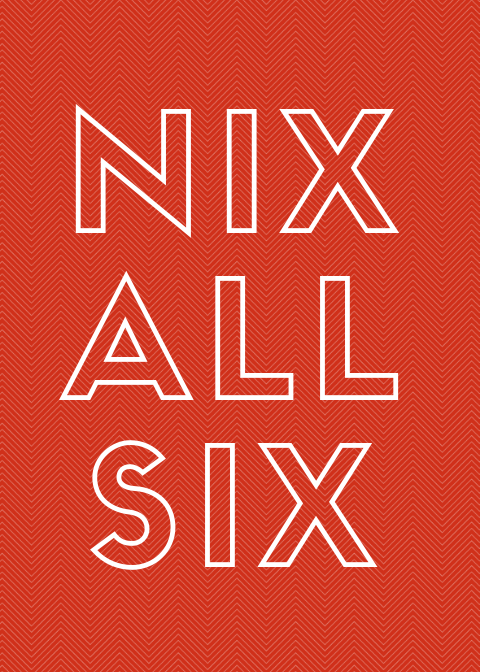2018 MIDTERMS: Understanding North Carolina's Proposed Constitutional Amendments
By Sarah Hoffman
Image via The Herald Sun
When early voting opens in 8 days, North Carolina voters will weigh in on six proposed constitutional amendments that if passed, will fundamentally change the future of the state’s government. But the amendment language voters will see on the ballot has been left purposefully vague. The Republican supermajority will write the final text for any approved amendments after the election – even if Democrats retake the legislature in the November.
Representative Marcia Morey of North Carolina’s 30th District started the “Nix All Six” campaign in opposition to all six amendments. Morey, a Democrat, visited Sanford on September 28 to share information about how and why the amendments got on the ballot—and why North Carolinians should vote against them.
Republican congress has a supermajority – enough votes to override a Governor’s veto and pass any law – which means that each of the proposed amendments could be enacted by the current legislature at any time. The push to write them into the constitution protects the Republican position should they lose their majority. Republican legislators put forward these amendments two days before they adjourned in May without bipartisan discussion or input.
In past years, proposed constitutional amendments included ballot captions written jointly by the Secretary of State, Attorney General, and Chief Legislative Services Officer (LSO). In a special session, the Republican legislature dissolved that committee, which was made up of two Democrats and one Republican.
As a result, the amendments have no accompanying explainers on the ballot, and voters must make their choices based on general statements. Implementing language for any approved amendments will be filled in by the Republican supermajority on November 27 – after the election but before the newly elected legislature is seated in January.
“I’m worried about where we’re going,” Morey said as she concluded her remarks. “I don’t want a supermajority Democratic congress, and I don’t want a supermajority Republican congress. I want a democracy.”
Hunting and Fishing Amendment
What it is: “Constitutional amendment protecting the right of the people to hunt, fish, and harvest wildlife.”
Why it is problematic: Morey sees this amendment as “baiting voters.” It is very likely the average person will see this amendment as inconsequential. Yet the amendment still poses a threat. Any restriction to hunting and fishing, however reasonable, could be in danger if the amendment is passed. For example, there are currently statutes in effect that limit hunting in certain public areas. The passage of this amendment could result in the loosening of these restrictions as hunting rights enshrined in the constitution take priority.
Victims’ Rights Amendment
What it is: “Constitutional amendment to strengthen protections for victims of crime, to establish certain, absolute basic rights for victims, and to ensure the enforcement of these rights.”
Why it is problematic: Again, Morey understands the appeal of this amendment to voters. “Who would vote against that?” But, she noted, victims already have constitutionally protected rights. The amendment has an estimated $30 million price tag which she described as a “train wreck for our criminal justice system.” Morey, a former judge, says an unfunded victim’s rights mandate would create a logjam in the courts, slowing the already heavily-delayed judicial process to a crawl.
Income Tax Cap Amendment
What it is: “Reduce the income tax rate in North Carolina to a maximum allowable rate of seven percent (7%).”
Why it is problematic: Morey noted the surface appeal of this amendment but described the small effect it would have on average North Carolinians. State income taxes are currently at 5% and only went over 7% temporarily after the recession. “If we pass this amendment and we have a crisis, taxes are going up, but they’re going up on sales taxes which are regressive and hurt the poor. . . they’re going up on property taxes. . . Services and fees, which are taxes, will be raised dramatically. The government will get its money somehow.” The current income tax cap is 10%.
Voter ID Amendment
What it is: “Constitutional amendment to require voters to provide photo identification before voting in person.”
Why it is problematic: Getting people to vote is hard enough. This amendment would create an additional barrier. Complicating this, the amendment gives the legislature complete discretion to decide what constitutes a photo ID. This legislation could result in limited voting rights for students and veterans. Morey believes the Republicans “will decide [what constitutes as a valid ID] in a way that will help Republicans win.”
Judicial Nominee Amendment
What it is: “Constitutional amendment to change the process for filling judicial vacancies that occur between judicial elections.” Currently the Governor has sole appointment power for vacancies. Under the new amendment, the Governor would have to choose between two nominees recommended by the legislature.
Why it is problematic: Morey believes this amendment is one of the most dangerous. In addition to being a “power grab” for judicial appointments, this amendment also opens the door for the legislature to add two additional seats to the state supreme court and to fill those seats with their allies.
Ethics & Elections Amendment
What it is: “Constitutional amendment to establish an eight-member Bipartisan Board of Ethics and Elections Enforcement in the Constitution to administer ethics and elections law.” Republicans previously tried to pass a similar law by statute but it was struck down in court.
Why it is problematic: The amendment would end the current composition of this board, which currently has a ninth, unaffiliated member who can serve as a tie-breaker between four Democrats and four Republicans. With an eight-member board, ties in election disputes would default to the status quo, giving Republicans veto power over any reforms.
Sarah Hoffman is a first-year at Duke’s Sanford School of Public Policy and second-year at the University of North Carolina School of Law focusing on the intersections of mental health and the criminal justice system.





